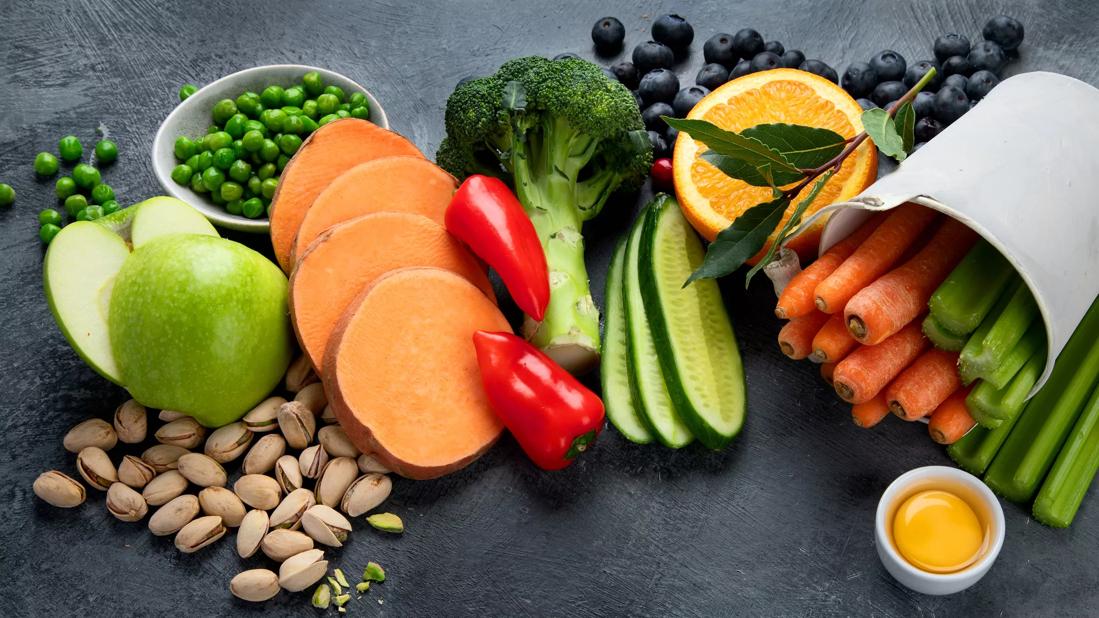This powerful carotenoid can help with your eye and skin health, LDL reduction and cognitive function

Image content: This image is available to view online.
View image online (https://assets.clevelandclinic.org/transform/6c7e5bc7-3be2-4cfc-a946-850dace9a44d/foods-with-lutein-1380969207)
Variety of foods that contain the antioxidant lutein
We talk a lot about how powerful antioxidants can be when it comes to your health. You’ve probably heard about flavonoids and their anti-inflammatory and anti-cancer properties. Or carotenoids and how they help battle free radicals.
Advertisement
Cleveland Clinic is a non-profit academic medical center. Advertising on our site helps support our mission. We do not endorse non-Cleveland Clinic products or services. Policy
But have you heard of lutein? Part of the carotenoid family, this antioxidant is essential to your eye health. It’s also responsible for giving fruits and vegetables a yellow or reddish color. And it’s also commonly found in the same foods with another carotenoid known as zeaxanthin.
Registered dietitian Julia Zumpano, RD, LD, explains the health benefits of lutein and how to get more of it into your daily diet.
From your eye health to your cognitive function, lutein is a powerful antioxidant. Lutein benefits include:
Studies show that lutein and zeaxanthin play a significant role in preventing age-related macular degeneration (AMD) by blocking harmful blue light.
And the duo may also help with diabetic retinopathy, retinal detachment and uveitis.
In addition to being in your eye tissues, lutein can be found in your brain tissues — and is considered the predominant carotenoid in your brain.
A study shows that taking a lutein supplement may help improve your cognitive function, such as learning, thinking, reasoning and remembering.
“Several forms of LDL (‘bad’ cholesterol) can cause plaque in the lining of your arteries,” explains Zumpano.
This can lead to atherosclerosis, an inflammatory disease that’s the leading cause of cardiovascular disease. But lutein and zeaxanthin help HDL (‘good’ cholesterol) particles grow.
Advertisement
“HDL helps remove extra cholesterol from your bloodstream and sends it to your liver for removal through your stool,” she further explains. “Research shows that increasing HDL can be heart protective.”
Remember how zeaxanthin and lutein protect your eyes by absorbing harmful blue light? Good news: The duo can do the same for your skin, which can help reduce or slow the signs of aging.
In fact, a study shows that a zeaxanthin and lutein supplement may help improve skin hydration, elasticity and inflammation.
Zumpano says that lutein can be found in a variety of foods you eat daily. But if you struggle to get the suggested daily amount of fruits and vegetables that provide lutein, then you may want to consider adding a lutein supplement.
“You can take lutein as a supplement and oftentimes, it’s recommended for conditions like macular degeneration,” she adds.
You can find lutein naturally in the following foods (Worth noting: These foods also contain zeaxanthin):
If you’re looking to get more lutein into your diet naturally, Zumpano says to aim to eat the recommended five servings of fruits and vegetables each day.
If you opt to add a supplement, lutein supplements are generally considered safe. But it’s important to note that taking a lutein supplement may lower your blood sugar and can cause yellowing of the skin. Another tip? Lutein is best absorbed when taken with a high-fat meal — think avocados, cheese, salmon and nuts.
Zumpano suggests speaking with a healthcare provider before adding any kind of supplement to your diet. It may be worth checking your multivitamin, too, as it may already contain your daily suggested dose of lutein.
It’s important to remember that supplements aren’t regulated by the U.S. Food and Drug Administration (FDA), so you want to do your homework. Look for products that have been tested by a third party such as USP or NSF.
Overall, lutein can play a vital role in your eye, skin, brain and heart health.
“Everyone needs lutein,” states Zumpano. “It has so many positive properties and so many health benefits that you should definitely focus on getting enough from your dietary sources on a day-to-day basis.”
Advertisement

Sign up for our Health Essentials emails for expert guidance on nutrition, fitness, sleep, skin care and more.
Learn more about our editorial process.
Advertisement
Pick bell peppers to help fight cancer, memory decline and joint pain
The tropical fruit is a good source of antioxidants and vitamin C
High amounts of cholesterol and saturated fat in red meat may be linked to heart disease
The leaves and pods from this tree are rich in essential nutrients
This starchy root vegetable is a staple in many global cuisines — but it has to be prepared correctly, or it can cause serious concerns
These delicate green sprouts can give you an extra dose of vitamin K and other nutrients — but they’re not safe for everyone
Edamame, lentils and chicken breast are good sources of protein
Eating this root vegetable can help support your eye, heart and brain health
Prioritize your health by managing stress, strengthening your social connections and getting quality sleep
Bolsters, blankets, pillows and blocks can offer extra support, stability and comfort
Allergies, postnasal drip, asthma or reflux could be to blame for a cough that won’t quit